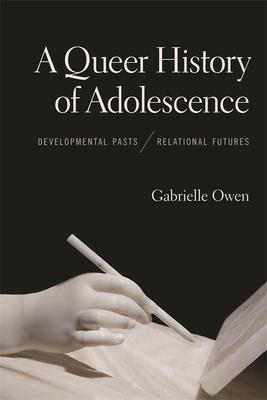A Queer History of Adolescence reveals categories of age--and adolescence, specifically--as an undeniable and essential mechanism in the production of difference itself. Drawing from a dynamic and varied archive, including British and American newspapers, medical papers and pamphlets, and adolescent and children's literature circulating on both sides of the Atlantic, Gabrielle Owen argues that adolescence has a logic, a way of thinking, that emerges over the course of the nineteenth century and that survives in various forms to this day. This logic makes the idea of adolescence possible and naturalizes our historically specific ways of conceptualizing time, development, social hierarchy, and the self.
Rich in intersectional analysis, this book offers a multifaceted and historicized theory for categories of age that challenges existing methodologies for studying the people called children and adolescents. Rather than offering critique as an end in and of itself, A Queer History of Adolescence imagines the world-making possibilities that critique enables and, in so doing, shines a necessary light on the question of relationality in the lived world. Owen exposes the profound presence of history in our current moment in order to transform the habits of mind shaping age relations, social hierarchy, and the politics of identity today.
Book
A Queer History of Adolescence: Developmental Pasts, Relational Futures
(Write a Review)
Paperback
$29.96
A Queer History of Adolescence reveals categories of age--and adolescence, specifically--as an undeniable and essential mechanism in the production of difference itself. Drawing from a dynamic and varied archive, including British and American newspapers, medical papers and pamphlets, and adolescent and children's literature circulating on both sides of the Atlantic, Gabrielle Owen argues that adolescence has a logic, a way of thinking, that emerges over the course of the nineteenth century and that survives in various forms to this day. This logic makes the idea of adolescence possible and naturalizes our historically specific ways of conceptualizing time, development, social hierarchy, and the self.
Rich in intersectional analysis, this book offers a multifaceted and historicized theory for categories of age that challenges existing methodologies for studying the people called children and adolescents. Rather than offering critique as an end in and of itself, A Queer History of Adolescence imagines the world-making possibilities that critique enables and, in so doing, shines a necessary light on the question of relationality in the lived world. Owen exposes the profound presence of history in our current moment in order to transform the habits of mind shaping age relations, social hierarchy, and the politics of identity today.Paperback
$29.96